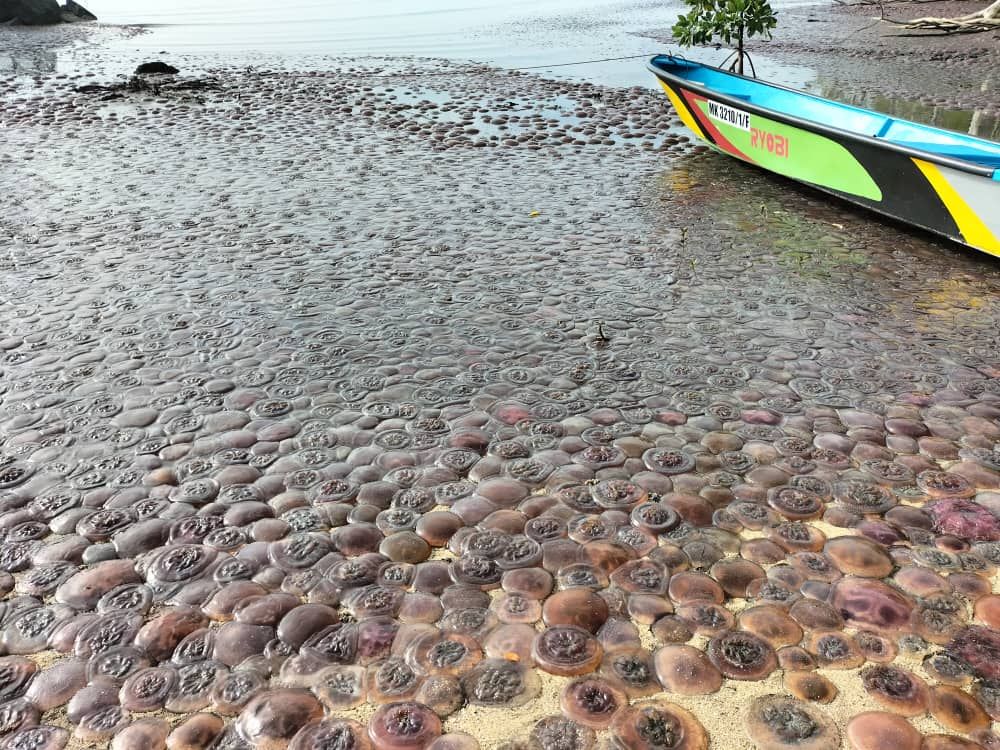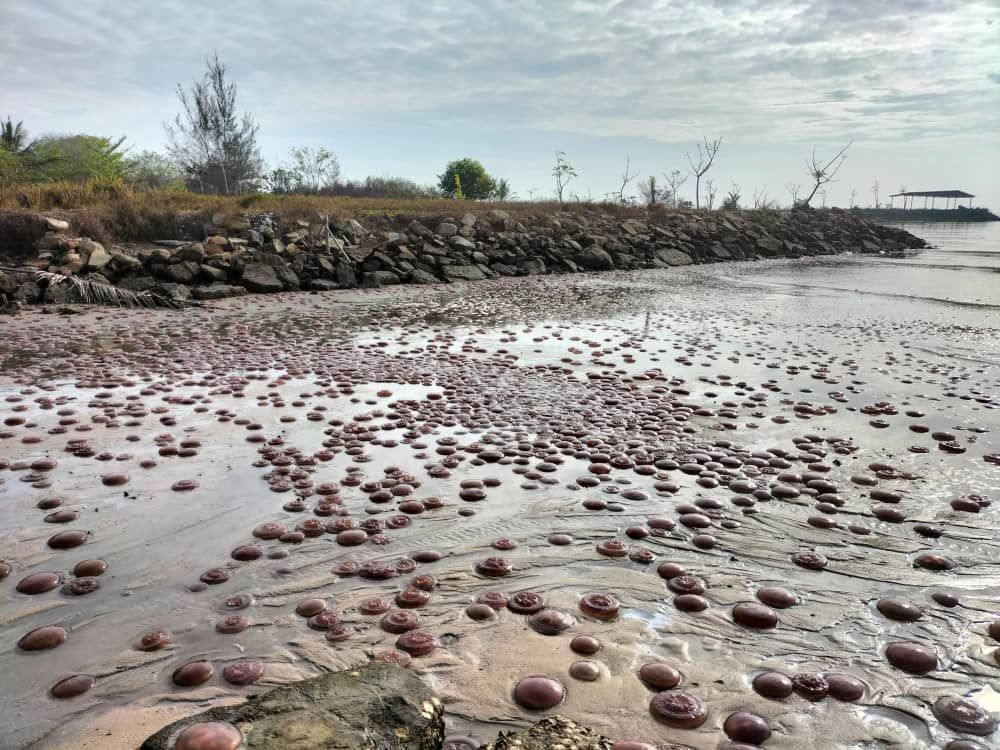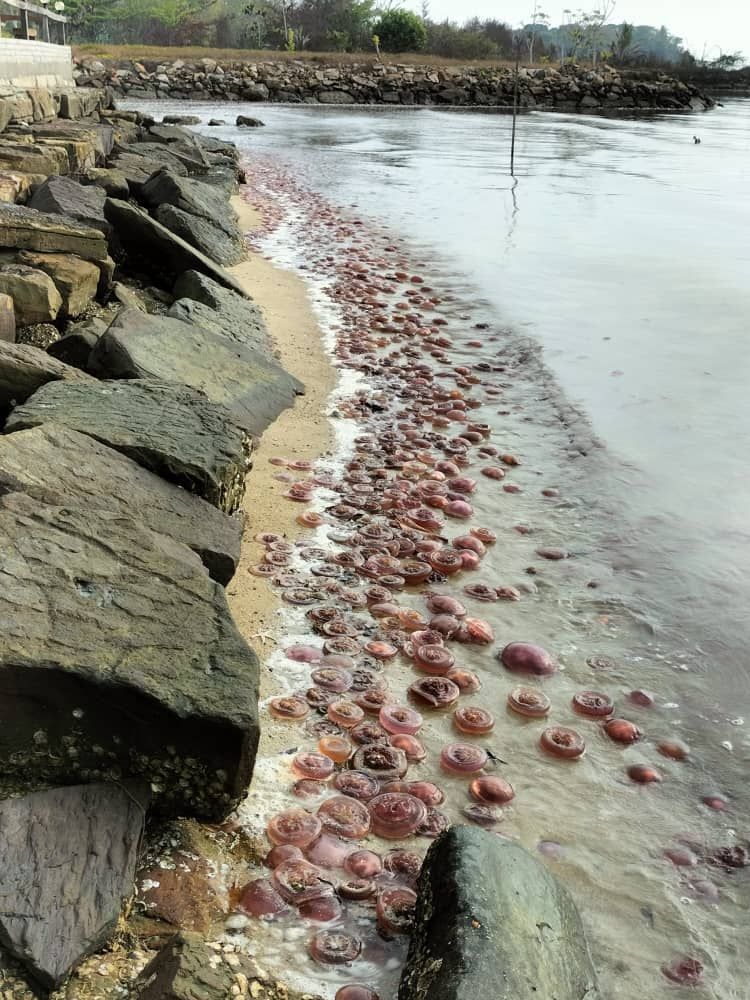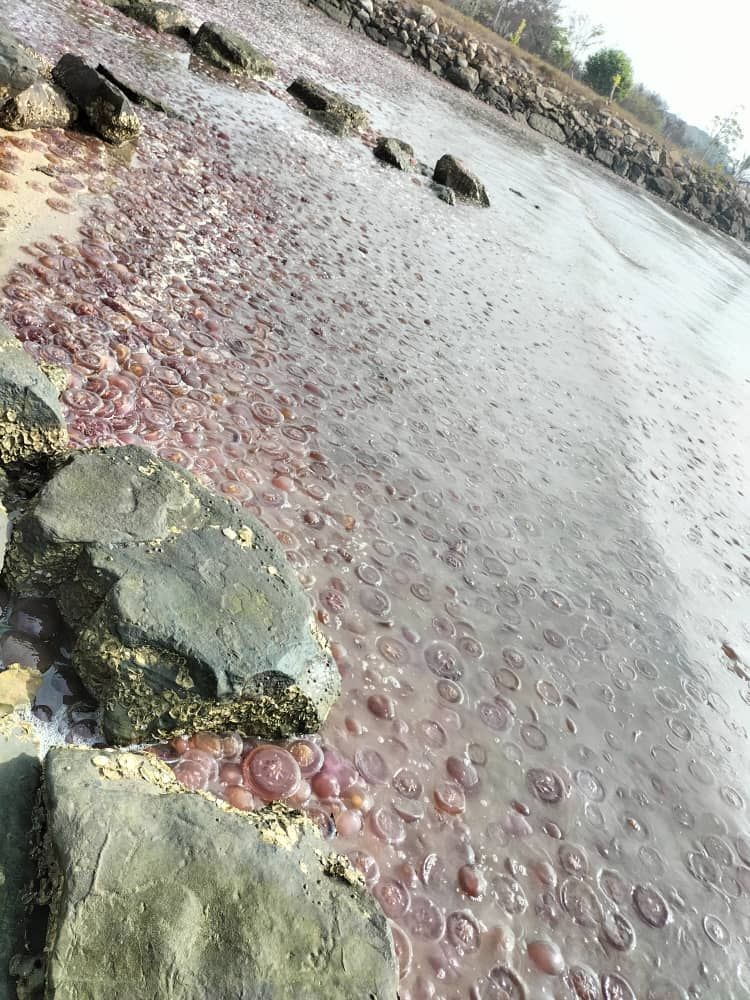KOTA KINABALU: While many ocean species are dying out due to the rising ocean temperature, the jellyfish seems to be enjoying the heat.
Sabah Fisheries Department director Azhar Kasim said the increasing sea water temperature has contributed to the surging rate of jellyfish reproduction, and its survival was closely related to the existence of food sources like zooplankton, small crustaceans and fries, among others.
Responding to a report over the large swarm of jellyfish, some still alive, spotted along 3km of the Kampung Jangkit beach in Kuala Penyu on Wednesday (March 27), he said the incident may also be influenced by the factors of the oceans high and low tides causing it to be washed and stranded on the seaside.
"We have identified it as the 'tomato jellyfish,' or scientifically known as lobonemoides robustus. They are not poisonous or dangerous, but can cause itching when they come into contact with the skin.
"According to research, the unusual population density of jellyfish occurs due to the increased rate of jellyfish reproduction following the rising sea water temperature," said Azhar.
He advised the public not to worry because these species were fragile.
"Since it is fragile, it could easily die and could result in an uncomfortable smell. It will, however, quickly disappear within one or two days."
Azhar also advised picnickers to avoid bathing in sea with a high population of jellyfish.









